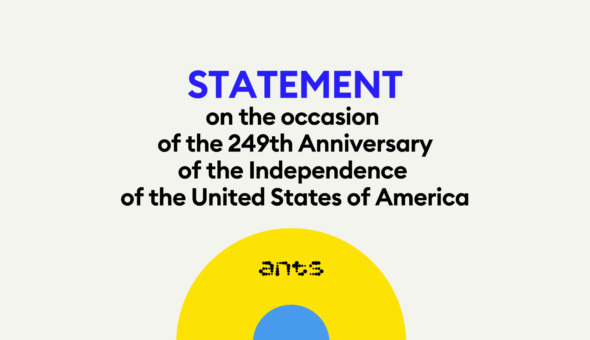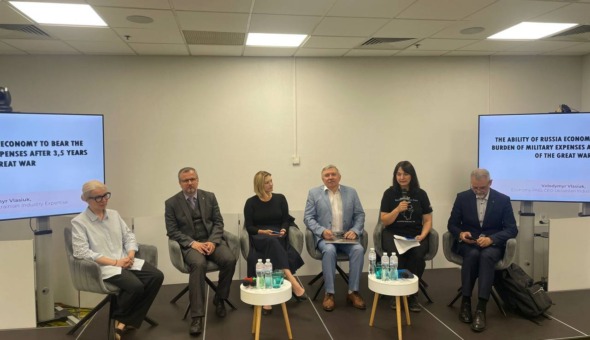
Which European values are particularly important to you? Equality, democracy, human rights, rule of law, freedom of speech, a strong civil society, unity. These are the opinions of the participants of the training “Coordination Council as a Platform for Participation of Vulnerable Groups” in six local communities located in six different regions of Ukraine, united by the desire to create conditions for an inclusive and equal society.
Ukraine is on the path to European integration. The full-scale war has not changed this aspiration. At the same time, it has caused a significant number of problems and challenges that local communities have never faced before. First and foremost, it concerns the lives and especially the health of people living in the community and those who have come to this community. Internally displaced persons, women, veterans, persons with disabilities and other vulnerable groups are in most cases not involved in decision-making processes and are voicing their own acute problems—both existing and new ones that have arisen as a result of the war.
The Coordination Council is one of the most effective mechanisms for involving citizens, especially vulnerable groups, in decision-making processes. At six training sessions on “Coordination Council as a Platform for Vulnerable Groups to Participate in Community Recovery,” trainer Oksana Drozdovska, NDI consultant and communications and partnership manager at the “Unity for the Future” Charitable Foundation, familiarized the participants with the mechanism of establishing the Coordination Council, the powers of the Coordination Council, the involvement of civil society representatives and vulnerable groups in the work of the Coordination Council, and shared examples of successful work and effective cross-sectoral.
The trainings were attended by 113 participants in the six target communities of the project: Berdychiv community (Zhytomyr region), Nizhyn community (Chernihiv region), Myroniv community (Kyiv region), Novoukrainka community (Kirovohrad region), Pervomaiske community (Mykolaiv region), and Dunayivtsi community (Khmelnytskyi region).

The creation of a community-based Coordination Council for Family Support, Gender Equality, Demographic Development, Prevention of Domestic Violence, Combating Human Trafficking, and the implementation of the National Action Plan for the Implementation of UN Security Council Resolution 1325 on Women, Peace and Security provides opportunities:
- Effectively coordinate the work of all departments, institutions, agencies, and organizations and receive up-to-date information on the implementation of local and state programs and the challenges faced in their implementation.
- Involve representatives of the public and vulnerable groups by including them in the Coordination Council;
- To voice acute problems that require intersectoral cooperation and interaction, support from the public, and finding ways to solve them.

Thanks to the interactive format of the training, the priority areas of activity of the Coordination Council in the community and issues that need to be addressed as a matter of priority were discussed and developed.
Each community has its own peculiarities due to its geographical location and economic aspects, but there are some basic issues that are key for all communities:
- First of all, it is the issue of combating post-traumatic stress disorders (PTSD) in the military and providing effective psychosocial rehabilitation for the military, as well as for those who have experienced stress – both local residents and internally displaced persons;
- Providing comprehensive assistance to internally displaced persons, especially those from vulnerable groups;
- Creation of accessible infrastructure in the community for people with disabilities and low-mobility citizens, as the war has led to a significant increase in the number of people with disabilities: both adults and children, both military and civilians;
- Preventing and counteracting gender-based violence and domestic violence, as the number of such cases has significantly increased both in families with military members and in families where such cases were not previously recorded. The situation in families with a high risk of violence has deteriorated. War has a negative impact on the psyche, which leads to an increase in the level of aggression and violence in the family;
- Working with young people to actively engage in community life, preventing negative phenomena among young people caused and exacerbated by the war;
- National and patriotic education, issues of culture and identity are the basis for the state.

The Berdychiv community noted that the issue of organizing and providing effective psychosocial assistance is extremely important. Establishing a shelter or center for single elderly people is relevant for the Nizhyn community.
The Myronivska community emphasizes the importance of coordinating the implementation of youth policy and national-patriotic education. Participants from the Novoukrainka community are interested in women’s rights issues, in particular the organization of professional nanny services (including free of charge for vulnerable groups of women and men) so that women can resolve their issues and be confident in the safety and care of their children, as well as health, which includes the promotion of a healthy lifestyle for all residents, starting from the youngest age, and effective and high-quality medical services.
In the Pervomaiska community, there are issues of employment and transport accessibility, especially for rural areas and people with disabilities. The Dunayevetska community noted that children need additional attention, in particular, children deprived of parental care, children from families in difficult life circumstances, and parents raising children with special educational needs must be supported.
The trainings were extremely useful for the participants:
- 83.5% said that the training and the lecturer were extremely interesting and would be happy to participate in similar initiatives in the future;
- 80.7% said they had gained a lot of new knowledge;
- 62.4% said that they would try to use it to the benefit of residents by participating in community initiatives;
- 30.3% will share the knowledge they have gained with friends, family and work colleagues.
The training emphasized the importance of the Coordination Council’s work as a practical tool for involving vulnerable groups in decision-making and strengthening democratic processes in the community, which is an integral part of Ukraine’s European integration process.
The trainings were conducted within the framework of the project “Models of Participation in Ukrainian Reconstruction” implemented by the ANTS The National Interests Advocacy Network with the participation of the Institute “Respublica”, All-Ukrainian Initiative “Active Community” and “Smart Media” under the auspices of the National Democratic Institute (NDI).
The project focuses on working with the public sector and representatives of various social (vulnerable) groups to monitor the current situation and find ways to formulate strategies for socially oriented community development, including collecting information on the economic situation, collateral damage caused by military operations, and developing recovery plans.
Oksana Drozdovska
consultant at the Zaporizhzhia Regional Association of Women Deputies of Local Council



